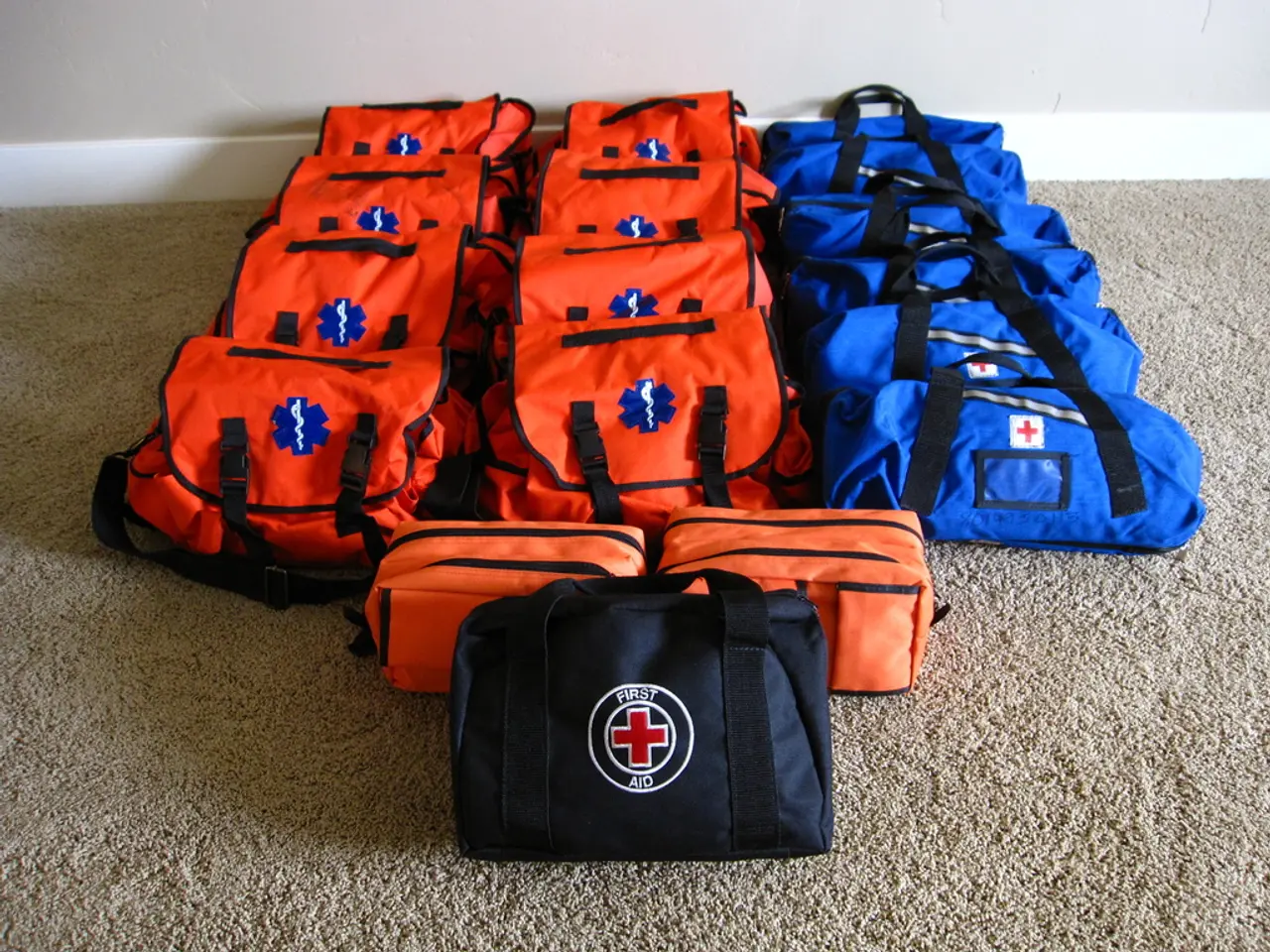Accelerated Breast Cancer Treatment for Women Now Facilitated by Artificial Intelligence
The UK government is set to revolutionise breast cancer screening with the launch of a groundbreaking trial, Early Detection using Information Technology in Health (Edith). This £11 million initiative, focused on harnessing the power of artificial intelligence (AI), aims to dramatically improve the early detection of breast cancer, potentially saving countless lives.
According to Breast Cancer Now, approximately 55,000 women and 400 men are diagnosed with breast cancer annually in the UK. With such high numbers, there is a pressing need to expedite progress in diagnosing cancers, a sentiment echoed by Professor Peter Johnson.
The Edith trial will implement AI technology in approximately 30 testing sites nationwide. The goal is to increase patient throughput in breast cancer screening, allowing for earlier detection and more efficient care.
Dr. Katharine Halliday, president of the Royal College of Radiologists, believes AI has the potential to revolutionise radiology, particularly in managing the high volume and complexity of breast screening procedures. However, she emphasises the importance of conducting a rigorous study to yield conclusive results in the Edith trial.
Claire Rowney, chief executive of Breast Cancer Now, shares this sentiment, stressing the importance of ensuring that any modifications to the breast screening program are supported by evidence demonstrating the safety and efficacy of new tools or innovations in patient care.
The anticipated 40% shortage of consultant radiologists by 2028, as per Dr. Halliday, further underscores the need for advanced technologies like AI to streamline and improve breast cancer screening processes.
The government's 10 Year Health Plan for England provides a broad framework for this transformation, focusing on shifting care closer to communities, embracing digital innovation, and enhancing prevention and early diagnosis. However, specific details on breast cancer treatment or the integration of AI in breast cancer screening are not yet explicitly outlined in this plan.
The forthcoming National Cancer Plan, expected to provide these specifics, is still in development with publication anticipated in autumn 2025. This plan is expected to build on the 10 Year Plan’s foundations to improve cancer patient outcomes and care experience with advanced technologies.
In addition to the Edith trial, other cancer-focused initiatives mentioned include fast-tracking patients into innovative cancer trials and appointing national clinical experts to guide access to clinically effective cancer treatments and integrate emerging therapies.
The synergy between cutting-edge technologies and evidence-based practices is poised to drive transformative changes in cancer care. Identifying cancer sooner, as emphasised by Peter Kyle, can be the decisive factor between life and death. Nearly 700,000 women are expected to participate in the Edith trial, with women scheduled for routine NHS screenings receiving invitations to join.
The national cancer plan aims to revolutionise cancer treatment methods and reduce mortality rates, addressing not only common forms of cancer but also rarer forms, including those affecting children. The focus is on enhancing research, diagnosis, screening, treatment, and prevention strategies, with the ultimate goal of improving patient outcomes and saving lives.
- The Edith trial, a groundbreaking £11 million initiative by the UK government, aims to harness the power of artificial intelligence (AI) to expedite progress in diagnosing breast cancer, potentially saving countless lives.
- Dr. Katharine Halliday, president of the Royal College of Radiologists, believes AI has the potential to revolutionise radiology, particularly in managing the high volume and complexity of breast screening procedures.
- The synergy between cutting-edge technologies and evidence-based practices is poised to drive transformative changes in cancer care, with nearly 700,000 women expected to participate in the Edith trial.
- The national cancer plan, expected to publish in autumn 2025, aims to revolutionise cancer treatment methods and reduce mortality rates, focusing on enhancing research, diagnosis, screening, treatment, and prevention strategies.
- The UK government's 10 Year Health Plan for England provides a broad framework for this transformation, embracing digital innovation, shifting care closer to communities, and enhancing prevention and early diagnosis to improve patient outcomes and save lives, not just for common forms of cancer, but also rarer ones like those affecting children.




